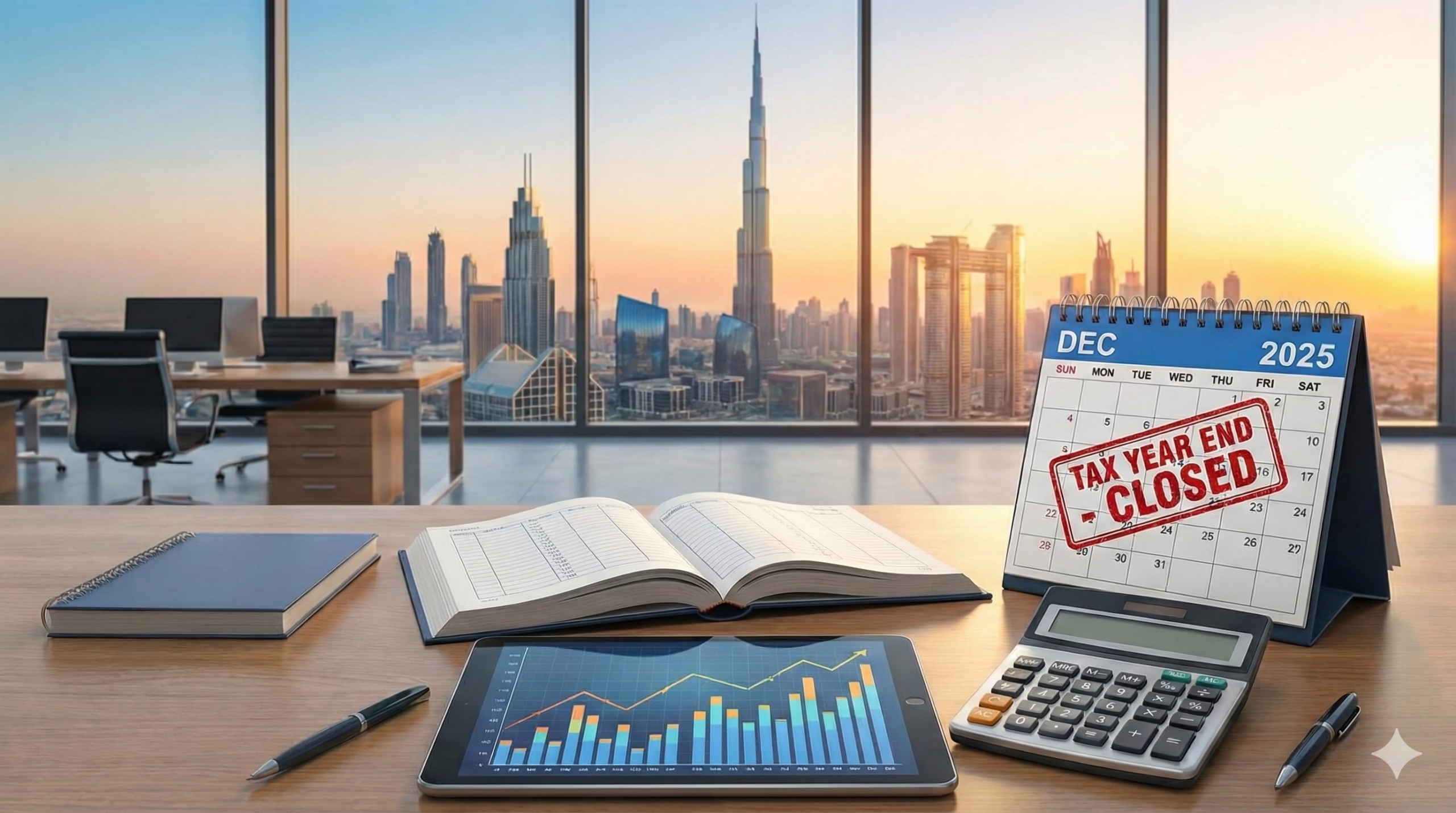

The UAE has always prioritized high-quality healthcare and education, ensuring accessibility and excellence in these essential sectors. With the introduction of Value Added Tax (VAT) in 2018, many businesses and consumers had concerns about how it would impact medical services, school fees, and related expenses.
Given that healthcare and education are fundamental to society, the UAE government has implemented specific VAT rules to minimize financial burdens while ensuring compliance with the Federal Tax Authority (FTA).
VAT in these sectors is not applied uniformly. Some medical treatments and educational services are exempt, while others are subject to zero-rated or standard-rated VAT.
The distinction between these categories is crucial for hospitals, clinics, pharmacies, schools, and universities, as incorrect VAT treatment can result in penalties, tax audits, and compliance issues.
Understanding what is taxable, what is exempt, and how VAT should be correctly applied helps businesses in these industries manage pricing, tax filings, and financial planning more effectively.
This article explores the key aspects of VAT in healthcare and education, ensuring clarity for both service providers and consumers.
The UAE government has taken a balanced approach to VAT in healthcare, ensuring that essential medical services remain affordable while maintaining compliance with tax regulations.
To achieve this, VAT is applied differently depending on the type of service, medical supplies, and healthcare provider involved.
In the UAE, most medical services and essential healthcare treatments are zero-rated, meaning that VAT is charged at 0%.
This classification ensures that hospitals, clinics, and healthcare providers can continue to offer affordable medical care without passing on VAT costs to patients.
To qualify for zero-rating, the medical service must be preventive or curative in nature and provided by a licensed healthcare professional. This includes doctor consultations, hospital treatments, surgeries, and diagnostic services.
However, certain elective and cosmetic procedures do not qualify for zero-rating and are instead subject to the standard 5% VAT rate.
Procedures that are not deemed medically necessary, such as cosmetic surgeries, aesthetic dermatology, and elective dental treatments, are fully taxable.
VAT treatment for pharmaceuticals and medical supplies depends on their classification by the UAE Ministry of Health and Prevention (MOHAP).
Medications that are registered and approved by MOHAP are zero-rated, meaning that VAT is charged at 0%, allowing pharmacies and hospitals to sell them without increasing prices for patients.
On the other hand, medical devices and equipment are subject to different VAT treatments. Equipment that is essential for medical treatment, such as wheelchairs, pacemakers, and ventilators, may qualify for zero-rated VAT.

However, general-use medical supplies, such as disposable gloves, surgical instruments, and hospital furniture, are typically subject to 5% VAT.
Health insurance is fully taxable at 5%, meaning that insurance premiums, administration fees, and related services provided by insurance companies and brokers must include VAT.
However, when an insurance provider settles a hospital or clinic bill on behalf of a patient, the underlying medical service remains zero-rated as long as it qualifies under the FTA’s guidelines.
Other healthcare-related services, such as fitness programs, wellness treatments, alternative medicine, and holistic therapies, are also subject to 5% VAT, unless they are provided by a licensed medical professional under a recognized treatment plan.
Education is a priority sector in the UAE, and the government has designed VAT regulations to minimize financial impact on students and families while ensuring compliance for schools, universities, and training institutions.
To achieve this, VAT treatment varies depending on the type of educational institution, the nature of the service provided, and whether the service is directly related to education.
The UAE applies a zero-rated VAT classification to qualifying educational services provided by schools, universities, and higher education institutions that are licensed by the Ministry of Education or other relevant authorities.
This means that VAT is charged at 0% on tuition fees, ensuring that education remains affordable while institutions can still recover VAT on business expenses.
However, not all educational services qualify for zero-rated VAT. Corporate training programs, professional development courses, and private tutoring services that are not part of a licensed school or university curriculum are generally subject to 5% VAT.
This applies to language institutes, executive training programs, technical workshops, and skill-based courses that operate independently from a recognized educational institution.
While tuition fees at licensed schools and universities are zero-rated, certain additional services provided by these institutions are subject to VAT at 5%.
This includes fees for extracurricular activities, after-school programs, private coaching, and transportation services.
For example, if a school charges a separate fee for extracurricular activities such as sports training, music classes, or school trips, VAT must be applied at 5%.
Similarly, school bus transportation services, cafeteria charges, and uniforms are also subject to standard VAT, as they are not considered direct educational services under FTA regulations.
Higher education institutions must also assess whether they qualify for zero-rated VAT. If a university receives more than 50% of its funding from the government, it qualifies for zero-rating on tuition fees.
However, if it operates as a private university with less than 50% government funding, then VAT must be charged at 5% on tuition fees as well.
Textbooks and educational materials that are part of the official curriculum of a zero-rated educational institution are also subject to 0% VAT.
However, books, stationery, and learning resources sold separately from the school or university’s direct curriculum are generally taxed at 5% VAT.
This means that if a school provides textbooks as part of the tuition fee, they remain zero-rated. However, if the school operates a separate bookstore selling additional learning materials, workbooks, or stationery, those items must include VAT at the standard rate.
Educational services that do not fall under a licensed school or university curriculum are fully taxable at 5% VAT. This applies to corporate training providers, private language courses, and professional certification programs.
Businesses that offer executive education, leadership training, or skill-based workshops must charge VAT on their fees and report them in their tax filings.
Training institutions must also ensure that their VAT compliance aligns with the correct invoicing format, tax filings, and input VAT recovery procedures.
Since professional training services involve business-to-business transactions, many companies will claim input VAT on corporate training expenses, making accuracy in VAT reporting essential.
Both healthcare and education institutions operate within a regulated VAT framework that requires careful financial planning and compliance measures.
Since zero-rated, exempt, and standard-rated transactions exist within these industries, businesses must implement structured VAT management strategies to ensure correct tax reporting, maximum VAT recovery, and risk minimization.
Hospitals, clinics, and pharmacies must classify services, medical supplies, and insurance transactions correctly to remain VAT-compliant.
Since some services are zero-rated while others are subject to 5% VAT, businesses must ensure that billing systems, tax invoices, and financial records accurately reflect the correct VAT treatment.
One of the biggest challenges in healthcare VAT compliance is determining whether a medical service qualifies for zero-rating. If a procedure is curative or preventive in nature, it should be zero-rated, while elective and cosmetic treatments are taxable.

Medical professionals and finance teams must work together to ensure that VAT is applied correctly, preventing misreporting and financial discrepancies.
VAT recovery also plays a key role in reducing operational costs for healthcare providers. Since hospitals and clinics often purchase expensive medical equipment, pharmaceuticals, and supplies, they must ensure that they are claiming input VAT on eligible expenses.
Businesses that fail to recover VAT on qualifying purchases may experience higher tax liabilities and unnecessary financial strain.
Educational institutions face unique VAT challenges, particularly when handling zero-rated tuition fees alongside taxable services. Schools and universities must ensure that all taxable and non-taxable revenue streams are clearly separated, preventing incorrect VAT reporting and potential tax audits.
A common issue arises when schools charge additional fees for extracurricular activities, transportation, or school materials. Since these services are taxable at 5% VAT, institutions must ensure that invoices clearly distinguish zero-rated tuition fees from taxable add-ons.
Automated accounting systems can help schools track VAT transactions accurately, ensuring that tax returns are filed correctly and on time.
Educational institutions must also ensure proper VAT compliance in partnerships and collaborations. Schools often partner with external service providers for activities such as catering, facility management, or outsourced educational programs, which may involve VAT liabilities.
Institutions must assess whether they are responsible for VAT payments under these contracts or if VAT is being handled by the external provider.
Both healthcare and education businesses must implement best practices to streamline VAT compliance, minimize risks, and improve tax efficiency.
Automating VAT tracking, ensuring clear invoicing practices, and conducting internal tax audits can help businesses stay ahead of compliance requirements.
Regular VAT reconciliations allow institutions to identify discrepancies in tax filings before they lead to penalties. Businesses should also ensure that finance teams receive proper VAT training, helping them understand which transactions are taxable, zero-rated, or exempt.
Engaging with professional tax consultants can further enhance VAT compliance, ensuring that businesses remain aligned with evolving FTA regulations while optimizing VAT recovery strategies.
Healthcare providers and educational institutions must ensure that VAT compliance is not treated as an isolated tax function but rather integrated into their financial and operational systems.
A fragmented approach to VAT management often leads to discrepancies in tax filings, unrecovered VAT, and audit risks. Institutions should align VAT compliance with billing, procurement, and financial reporting, ensuring that every transaction is categorized correctly from the outset.
For healthcare providers, VAT integration means that every medical service, pharmaceutical sale, and insurance claim should be pre-classified based on tax treatment.
Electronic billing systems must automatically apply zero-rated VAT on eligible treatments while charging standard VAT on taxable services, eliminating manual errors.
Similarly, educational institutions must differentiate between zero-rated tuition fees and taxable ancillary services, ensuring that invoices clearly reflect the correct VAT treatment for each revenue stream.
Since both healthcare and education institutions handle a mix of taxable and non-taxable transactions, VAT recovery is a key financial optimization strategy.
Many organizations fail to reclaim input VAT on eligible expenses, leading to higher operational costs and reduced profit margins. Institutions must establish a structured VAT recovery process, ensuring that all qualifying business expenses are tracked and accounted for in VAT filings.
For hospitals and clinics, VAT recovery should focus on medical equipment, pharmaceuticals, and facility maintenance costs. Businesses should ensure that every supplier invoice includes VAT details, and that all expenses eligible for input VAT claims are properly recorded.
Educational institutions, on the other hand, must assess whether VAT paid on infrastructure, administrative expenses, and operational supplies can be offset against taxable revenues, reducing overall tax liabilities.

To ensure ongoing VAT compliance, regular internal VAT audits should be conducted. Many healthcare and education providers overlook small VAT discrepancies, only realizing their impact when FTA audits uncover reporting errors.
By proactively reviewing VAT records, institutions can identify missing VAT claims, incorrect classifications, or inconsistencies in invoicing, reducing the risk of penalties.
An internal VAT audit should focus on validating tax filings, reviewing VAT calculations, and reconciling input VAT with actual business expenses. Finance teams should collaborate with tax advisors to cross-check VAT recovery claims against FTA regulations, ensuring that every tax deduction is legally justified.
Businesses that regularly audit VAT records are less likely to experience unexpected tax liabilities or disputes with the FTA.
Healthcare and education institutions must invest in VAT automation tools to streamline tax compliance. Manual VAT processing is time-consuming, error-prone, and inefficient, particularly for businesses handling large transaction volumes.
Implementing automated tax solutions ensures that VAT is applied correctly across all transactions, reducing the administrative burden on finance teams.
Cloud-based VAT tracking systems enable institutions to generate real-time tax reports, monitor VAT recovery opportunities, and ensure timely tax return submissions.
These solutions also integrate with accounting software and financial management platforms, ensuring that VAT compliance is aligned with overall business operations.
Institutions that adopt AI-powered VAT analytics can further optimize tax efficiency by identifying patterns in VAT recoveries, cash flow fluctuations, and compliance risks.
Healthcare and education institutions must take a proactive approach to VAT compliance to ensure financial efficiency, regulatory alignment, and risk minimization.
Since these industries deal with a combination of zero-rated, exempt, and taxable transactions, businesses must adopt long-term VAT strategies that enhance cash flow management, tax recovery, and operational efficiency.
Hospitals, clinics, and pharmacies should integrate VAT compliance into their financial planning to ensure that their pricing models, billing structures, and procurement strategies align with FTA regulations.
Since medical services are often a mix of zero-rated and taxable treatments, healthcare providers must continuously review their tax classification to avoid misreporting and compliance risks.
One of the most effective ways to optimize VAT is by maximizing input VAT recovery on eligible purchases such as medical equipment, pharmaceutical supplies, and operational costs.
Hospitals and clinics that fail to reclaim VAT on imported medicines, laboratory consumables, and infrastructure investments may experience higher tax liabilities than necessary. Implementing automated VAT tracking systems ensures that all recoverable VAT is accounted for and included in tax filings.
Another critical area is VAT risk management in health insurance transactions. Since insurance services are taxable at 5%, hospitals and clinics must ensure correct VAT treatment when invoicing insurance providers for medical claims.
A structured billing and reconciliation process helps prevent incorrect tax filings, rejected VAT claims, and disputes with tax authorities.
Educational institutions must focus on clear financial structuring, tax-efficient pricing models, and accurate VAT classification to prevent compliance risks and unnecessary tax burdens.
Since tuition fees at licensed schools and universities are zero-rated, businesses must ensure that their accounting systems correctly differentiate between tuition income and taxable revenue streams.
Schools and universities should also implement long-term VAT strategies to manage additional revenue-generating services such as extracurricular activities, transportation, and facility rentals.
Since these services are taxable at 5%, institutions must ensure proper VAT invoicing and tax reporting to prevent financial penalties.
VAT structuring is also essential for higher education institutions that receive mixed funding sources. Private universities that do not meet the 50% government funding threshold must charge VAT at 5% on tuition fees, requiring careful financial planning to maintain affordability and compliance.

Healthcare and education businesses that handle large transaction volumes must embrace digital transformation to manage VAT compliance effectively.
Implementing automated tax reporting systems, digital invoicing tools, and AI-powered financial analytics can significantly reduce the risk of misreporting, missed VAT recovery, and regulatory violations.
Cloud-based VAT tracking solutions allow businesses to monitor tax liabilities in real time, generate error-free VAT invoices, and streamline tax return submissions. This ensures that companies remain compliant while improving operational efficiency.
Given the complexities of VAT in healthcare and education, businesses should seek expert tax advisory services to ensure full regulatory alignment and financial optimization.
Professional VAT consultants can help institutions navigate FTA audits, implement VAT-saving strategies, and stay updated on changing tax regulations.
For organizations undergoing FTA audits or VAT disputes, having a structured tax compliance framework and expert advisory support ensures that businesses can defend their tax positions and mitigate financial penalties.
VAT compliance is an essential aspect of financial management in the healthcare and education sectors, requiring accurate tax classification, efficient VAT recovery, and proactive regulatory planning.
Businesses that adopt structured VAT policies, automate financial processes, and engage with tax professionals will ensure long-term compliance, reduced financial risk, and enhanced tax efficiency.
At Protax Advisors, we specialize in VAT planning, compliance solutions, and tax optimization for healthcare and education institutions.
If your organization needs expert VAT guidance, audit support, or compliance strategies, contact us today for customized tax solutions that ensure financial success and regulatory confidence.




Schedule a consultation call and learn how our expertise in accounting and tax services can benefit your business.